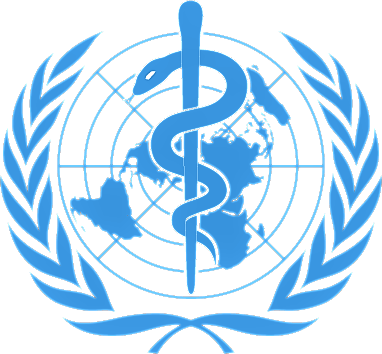The current functioning of WHO needs to be questioned during this year's World Health Assembly, whereby reflections should focus beyond the current pandemic.
Not only to tackle future pandemics - but also to address the impact of poverty and harmful commercial practices on peoples’ health - WHO needs to be enabled to fulfil its constitutional mandate to work for health for all as a human right. For too long, it (and other UN agencies) have been pressured to support the neoliberal restructuring of these agencies and the trading away of their key functions, a process to which top officials have actively contributed. WHO needs to be enabled to fulfill its function of being the coordinating agency in public health as well as regulating transnational practices.
To this aim, full public funding of public institutions has to come seriously on the public agenda, through which the idea of corporate funding of the World Health Organization should be stopped

Corona-Policy-Chaos and Health for All
By Judith Richter, PhD
Independent Researcher [1]
The overarching theme of the imminent World Health Assembly – from 24th May for just over one week – is “Ending this pandemic, preventing the next: building together a healthier, safer and fairer world.”[2]
What is standing in the way of this laudable and desirable goal? The following reflections are based on my several decades’ research during which time WHO, like other UN agencies, came under pressure to reform itself along neoliberal lines. My goal has always been to support WHO’s capacity to maintain and fulfil its constitutional mandate to work for peoples’ right to health and safeguarding its constitutional coordinating and regulatory core functions.
I am no expert on communicable diseases and epidemics and do appreciate it has been a major challenge for policy makers to determine what measures are adequate and appropriate to minimize transmission of the Covid-19 virus and protect peoples’ health.
But I do have experience in striving to protect and maintain public interest safeguards in the international public health arena, work that has involved paying particular attention to who says what and in what manner – and what is not said. From this perspective, accounts of the role of Bill Gates in this pandemic have left me feeling deeply uncomfortable.
It is of grave concern that so many people seem ready to believe that Bill Gates created this pandemic so as to control everyone through computer chips contained in the vaccine against Covid-19 that would implant themselves in our brains. However, I am concerned about the widespread focus on “conspiracy theories” when explaining why people wonder about possible influence of Bill Gates and pharmaceutical companies, and the World Economic Forum the ways in which the Covid-19 pandemic has been handled to date.
To what extend has press coverage helped people better understand the intricacies of health politics? How to explain, for example, the following shift in reporting by the New York Times? In 2017, just before Dr. Tedros election to Director-General of the World Health Organization, a New York Times article finally picked up on long-standing analyses that WHO could be saved from Gates’s dominant influence on world health politics if its member countries paid fully the organization’s budget.[3] Three years later, after the first phase of the Covid-19 pandemic, a NYT Opinion piece heralded Bill Gates as a “prophet” for his forecasting of this, and future, pandemics.[4]
Until recently, serious investigative on the relationships between these actors and their undue influence seem to have rarely made it into the mainstream press. Could this be a result of a systemic bias, due in part to Bill Gates wide-reaching funding in the field of public health over the past two decades, ranging from major public-private initiatives to academia, media, and medical journals?
While it is important to understand which actors are currently spreading problematic information, it seems even more important to enable the many concerned people and policy makers to grasp the depth of the multiple webs of influence spun over the past few decades by transnational corporations, the World Economic Forum, and venture philanthropies such as the Bill and Melinda Gates Foundation and Ted Turner’s UN Foundation – and consequences for public health and global democratic governance.
Glimmers of hope
One glimmer of hope is the report recently published in the British Medical Journal by independent investigative journalist Tim Schwab, who raises questions about financial conflicts of interest of the philanthropic actors and trust funds who have been funding research during the Covid-19 pandemic.
Another is that some mainstream press articles are now highlighting the paradox of Bill Gates being heralded as a saviour because of his Foundation’s vaccine donations to the poor given that he has contributed to a lack of vaccines through his defense of the patent system. [5]
Tim Schwab had already raised questions about the lack of transparency and accountability surrounding both philanthropic and commercial actors.[6] Pertinently he has asked whether Gates Foundation funding of the Institute for Health Metrics and Evaluation (IHME), which is criticized for producing statistics of questionable value, contributed to the premature declaration in the USA in the summer of 2020 that the Covid-19 pandemic had ended.[7]
Schwab’s BMJ article also cites sociology professor Lindsey McGoey’s[8] concerns about reliance on a “charitable model” and an ideology of “private sector saviourism” instead of a “health justice model”.[9] Such concerns are not new but have been raised repeatedly over the past two decades, ever since UNICEF and Bill Gates launched the first model “global health public-private partnership” in 2000: the Global Alliance for Vaccines and Immunization, now simply GAVI. This coincided with WHO Director-General Gro-Harlem Brundtland diverting WHO away from the Health for All model that viewed health in its cultural, social, political and economic contexts. [10] This perspective advocated justice-based health policies, binding regulation of harmful practices of transnational corporations, and transfer of knowledge and technology to “developing” countries.
Some more questions
Building on such glimmers of hope, further questions need to be raised during this year’s World Health Assembly and afterwards. In particular, has the influence of the Gates Foundation and the World Economic Forum in the international health arena contributed to WHO’s advice during the Covid-19 pandemic that has overemphasized and relied heavily on high-tech solutions, most obviously vaccination, to the neglect of so-called low-tech solutions and broader public health measures while undervaluing the experience of Asian countries with the earlier SARS epidemic? [11]
In the early phase of the Covid-19 crisis, many newspapers highlighted the approach of decreasing people’s physical contact with each other through “lock-down” measures until vaccines could be produced with unprecedented speed to “end” the pandemic.
Such high-tech tunnel vision, vaccines being the light at the end of the tunnel, fits with a “world according to Gates” who is known for his preference of technical solutions to health and nutrition problems and who had stated his preference for immunization over combatting poverty.[12] In such a world, it might not have been seen as a problem that many lockdown measures would have more problematic impacts on those not able to shift to online-based “home-office” work and who lack the funds and skills to provide and receive online-schooling.
Neglect of low-tech measures was highlighted in September 2020 when Bill Gates reportedly stated that ‘We underestimated the value of masks’.[13] Who was the “we”? Did it include the World Health Organization?[14]
In the early phase of the pandemic, WHO advised against the general population wearing face masks with the explanation that a general mask requirement could lead not enough masks for health professionals but also that mask wearing may lead to people not following the advice to keep a safe distance from each other.
Did the webs of corporate and philanthropic influence on vaccine development (and possibly that of diagnostics as well) contribute to a failure to recognize earlier that even home-made cloth masks can help minimize the spread of this virus?[15] That wearing of FFP2/N95 masks could have enabled more small and mid-size business to stay open?
Why wasn’t more attention paid to researching this low-tech solution, particularly when introducing and loosening the “lock-downs”? The US Centers for Disease Control and Prevention stated in November 2020 that “Adopting universal masking policies can help avert future lockdowns, especially if combined with other non-pharmaceutical interventions such as social distancing, hand hygiene, and adequate ventilation.” The agency cited an economic analysis that found a 15% increase in universal masking could prevent losses of up to $1 trillion – 5% of the US GDP.[16]
A thorough review is needed of the evidence behind each of the recommended “lock-down” measures in the private and commercial realm. Taiwan’s research based on its SARS experience found that shops were not a major source of spreading that virus.[17] Why has there been such a focus on measures to limit “physical contacts” rather than focusing squarely on limiting the spread of the virus?
“Ending this pandemic, preventing the next: building together a healthier, safer and fairer world?”
These are wonderful aspirations for which long-standing obstacles have to be tackled.
Plans need to be made how to minimize wasting public resources, prevent corruption, and damaging the economy understood from a people-centred perspective. It must focus on maintaining peoples’ livelihoods, not on maintaining DAX indexes.[18]
All in all, reflections need to focus beyond the current pandemic. I do not believe that the economic lock-downs implemented so far can be stretched much longer. I doubt they can be repeated in another pandemic. Too big are the debts that will have to be paid back already now, possibly even by future generations. It is time to reverse the long-standing trend towards a predatory economic model which includes establishing tax justice.
Not only to tackle future pandemics – but also to address the impact of poverty and harmful commercial practices on peoples’ health – WHO needs to be enabled to fulfil its constitutional mandate to work for health for all as a human right. For too long, it (and other UN agencies) have been pressured to support the neoliberal restructuring of these agencies and the trading away of their key functions, a process to which top officials have actively contributed. WHO needs to be enabled to fulfill its function of being the coordinating agency in public health as well as regulating transnational practices.
The current functioning of WHO needs to be questioned. The draft concept paper behind its current Global Work Programme advocated making WHO just one “stakeholder” in a system of multi-stakeholder governance – and turning it into a broker of multi-stakeholder partnerships.[19]
The term “multi-stakeholder” usually involves increasing the (undue) influence of big business and the hyper-rich. The increasing hegemony of the “partnership” model in recent years, a corner stone of the neoliberal restructuring of our world, has seeped into the ways in which the Covid-19 pandemic is being handled.
It is important to continue pointing out that this model’s public-private “partnership” rules have led to the erosion of good public governance.[20]
The Corona crisis has revealed cracks in the narrative that in difficult times “all stakeholders” have to work together in “partnership” in a spirit of “trust” and that nobody should be excluded because relationships between UN and so-called non-state actors should work along a supposed “principle” of “inclusiveness.”
The World Economic Forum, venture philanthropies, high-level UN-officials, public-private partnership brokers and corporate funded academics have all contributed to crafting this narrative that is now part of everyday language and thinking.
Another cautionary tale needs to take hold: don’t invite the wolf into the sheep pen, because the risks of building a health system based on the “charity” of powerful economic actors are significant. Full public funding of public institutions has to come seriously on the public agenda[21]. The idea of corporate funding of the World Health Organization should be stopped.
To start a process of disentangling itself from undue influences and helping it regain public trustworthiness, WHO needs to replace its false conflict of interest definition in its 2016 Framework of Engagement with non-State Actors by a law-based conception;[22] moreover, when it comes to interactions of public interest with business- and philanthropic actors, UN agencies and governments need to eliminate reference to alleged “principles” of “inclusiveness” and “trust”. In fact, in such interactions, trust needs to be replaced by “vigilance” – a recognized conflict of interest principle.[23] If this is not done, WHO’s Framework of Engagement with non-State Actors and its Global Work Programme will continue being frameworks to justify undue entanglements.
I sincerely hope that this year’s World Health Assembly will no lead further down the road towards an unhealthy, unsafe, and deeply unfair a world.
Endnotes
[1] Editing support of Sarah Sexton is gratefully acknowledged
[2] The Assembly can be followed virtually, cf. https://www.who.int/about/governance/world-health-assembly/seventy-fourth-world-health-assembly, accessed 18.05.2021
[3] Donald G. McNeil Jr., “The Campaign to Lead the World Health Organization,” New York Times, April 3, 2017, https://www.nytimes.com/2017/04/03/health/the-campaign-to-lead-the-world-health-organization.html; (2020)
[4] (2020) Bill Gates is the most interesting man in the world. New York Times, May 5 https://www.nytimes.com/2020/05/22/opinion/bill-gates-coronavirus.html. Not mentioning, e.g the film Contagion, which drew on the account of experts of the SARS pandemic.
[5] E.g Linsey McGoey (2021) The People v. Bill Gates, LRB blog, London Review of Books, 4 May
[6] While the Poor Get Sick, Bill Gates Just Gets Richer: The billionaire’s pandemic investments, like much of his work, remain a secret. The Nation, 5 October 2020, https://www.thenation.com/article/economy/bill-gates-investments-covid/
[7] Schwab, Tim (2020) Are Bill Gates’s Billions Distorting Public Health Data? Thanks to the Microsoft founder’s support, the IHME can make its own rules about how to track global health. That’s a problem, The Nation, 3 December.
[8] Also author of No Such Thing as a Free Gift. The Gates Foundation and the Price of Philanthropy
[9] Schwab, Tim (2021) Covid-19, trust, and Wellcome: how charity’s pharma investments overlap with its research efforts, BMJ, 3 March, doi: BMJ 2021;372:n556, https://www.bmj.com/content/372/bmj.n556. It seems important to investigate the influence of the Gates and Wellcome Foundation as well as that of conflicted academics in German international health policies, seen most recent the announcement of a new hub for pandemic intelligence. https://www.who.int/news/item/05-05-2021-who-germany-launch-new-global-hub-for-pandemic-and-epidemic-intelligence
[10] Richter, Judith (2004) Public-private partnerships and international health policy-making: how can public interests be safeguarded? Elements for Discussion Series, Ministry for Foreign Affairs Finland, Helsinki, September, pp. 68-83
[11] I have read two interviews of historical experts on earlier pandemics who felt that there has been an emphasis on high-tech solutions.
[12] Birn, A.-E. & J. Richter (2019) U.S. Philanthrocapitalism and the Global Health Agenda: The Rockefeller and Gates Foundations, Past and Present. Health Care under the Knife (advance chapter see http://www.peah.it/2017/05/4019/
[13] Natasha Turak (2020) Bill Gates: ‘We underestimated the value of masks’, CNBC, Health and Science, 16 September, https://www.cnbc.com/2020/09/16/bill-gates-we-underestimated-the-value-of-masks.html
[14] For interconnections, see e.g. also Greenstein, Michele & Jeremy Loffredo (2020) Why the Bill Gates global health empire promises more empire and less public health: Coronavirus Non-Profit Industrial Complex, 8 July, https://thegrayzone.com/2020/07/08/bill-gates-global-health-policy/
[15] As evidenced by the success e.g. in Czech Republic during the first phase of the Corona-crisis. And advantage that was lost later on a.o. through signals given by overly early loosening up of the requirement of wearing masks in risks situations and late reaction to the second phase. Pirodsky, J. (2020) Czech Republic coronavirus updates, July 1: 149 cases Tuesday, face mask restrictions lifted, Expat.cz, 1. Juli https://news.expats.cz/coronavirus-in-the-czech-republic/czech-republic-coronavirus-updates-july-1-149-cases-tuesday-mask-arestrictions-lifted/, accessed 13.11.2020
[16]Mascarenhas, Lauren (2020) CDC now says masks protect both the wearers and those around them from Covid-19, CNN health, 11.November. https://edition.cnn.com/2020/11/10/health/masks-cdc-updated-guidance/index.html
[17] Li-Chien Chien , Christian K. Beÿ and Kristi L. Koenig (2020) Taiwan’s Successful COVID-19 Mitigation and Containment Strategy: Achieving Quasi Population Immunity. Published online by Cambridge University Press: 11 September. https://www.cambridge.org/core/journals/disaster-medicine-and-public-health-preparedness/article/taiwans-successful-covid19-mitigation-and-containment-strategy-achieving-quasi-population-immunity/0123549586C95DCC93C77E5EF1F613D5
[18] El-Gingihy, Y. (2018). “The great PFI [Private Finance Initiative] heist: The real story of how Britain’s economy has been left high and dry by a doomed economic philosophy.” The Independent, 17 February. https://www.independent.co.uk/news/long_reads/pfi-banks-barclays-hsbc-rbs-tony-blair-gordon-brown-carillion-capita-financial-crash-a8202661.html
[19] See e.g. Richter, Judith (2017) Comments on Draft Concept Note towards WHO’s 13th General Programme of Work, 14 November, http://g2h2.org/wp-content/uploads/2017/09/Judith-Richter-1.pdf.
[20] Understood by the simple definition of “rule setting formal and informal” and exemplified by the picture of who is at the rudder (French gouvernail) of the global health boat. More about the introduction of this term in the health field, see Richter, Judith (2001) Holding corporations accountable: corporate conduct, international codes, and citizen action. London & New York: Zed Books.
[21] About some ideas about how to redress institutional erosion, see Jonathan H. Marks(2019) The Perils of Partnership: Industry Influence, Institutional Integrity, and Public Health. Oxford University Press (2019)
[22]Rodwin Marc A. (2020) WHO’s attempt to navigate commercial influence and conflicts of interest in nutrition programs while engaging with non-state actors: Reflections on WHO guidance for nation states: Comment on “Towards preventing and managing conflict of interest in nutrition policy? An analysis of submissions to a consultation on a draft WHO tool.” Int J Health Policy Manag. doi:10.34172/ijhpm.2020.162. If definition proposed in the OECD Guidelines for Managing Conflict of Interest in the Public Service is updated according to this model, the Guidelines, in particular its principles, can be used to counteract WHOs and also SUN’s problematic definitions. The problematic proposal to revise the guidelines “in partnership” with business, however, should be replaced by “in a due process”.
[23] E.g. OECD (2012). Recommendation of the Council on Principles for Public Governance of Public-Private Partnerships. Bruxelles, OECD. http://www.oecd.org/governance/budgeting/PPP-Recommendation.pdf
– see there also the proposed PPP definition which differs markedly from that used in UN circles.
—————————–
By the same Author on PEAH
Defending and Reclaiming WHO’s Capacity to Fulfil its Mandate: Suggestions from a Perspective of Language and Power by Judith Richter
U.S. Philantrocapitalism and the Global Health Agenda by Anne-Emanuelle Birn and Judith Richter





